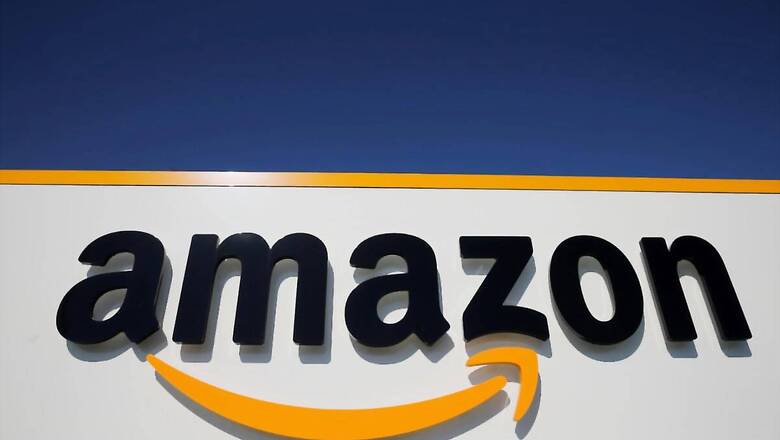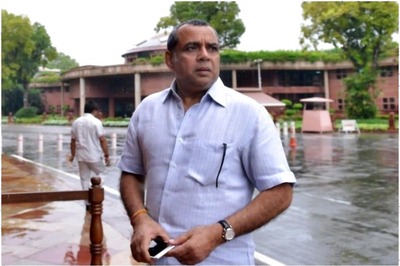
views
A controversial deal made by Amazon with an arm of Future group in August last year has put the US e-commerce giant at odds with both Future group founder Kishore Biyani and Reliance Retail, which acquired the assets of the troubled retailer in August this year. Amazon, which had invested Rs 1,431 crore in Future Coupons, is looking to control assets worth over 20 times this sum. According to an analysis by Moneycontrol, it could be a case of the tail wagging the dog. Here is how Amazon is trying to accomplish this feat:
On August 12, 2019, Future Retail, a listed entity, entered into a shareholders agreement with the KB Group (comprising Kishore Biyani, his family members, and certain private limited companies controlled by Kishore Biyani) and Future Coupons Ltd. This agreement provided some special and material rights to Future Coupons, which held convertible warrants in Future Retail. Crucially, it said that retail assets of Future Retail could not be licensed, transferred or alienated without the approval of Future Coupons. In particular, it gave Future Coupons a veto over the sale of Future Retail’s assets to competitors, notably Reliance.
Ten days later, Future Coupons, having obtained this veto over Future Retail, entered into a shareholders agreement with Amazon and KB Group. This is where Amazon invested Rs 1,431 crore for a 49 percent stake in Future Coupons. Amazon also had a call option to buy out KB Group’s equity in FRL, if and when the government relaxed the Foreign Direct Investment Policy for Multibrand Retail Trade.
Lawyers believe the reason that Amazon was resorting to this calisthenics of investing in Future Coupons while its target was actually Future Retail was because it was trying an indirect route to circumvent the law of the land. Future Retail is engaged in the business of multibrand retail trade through Big Bazaar, Easyday, eZone and FoodHall. India prohibits FDI in multibrand retail without prior approval. FDI up to 51 percent in multibrand retail is allowed subject to conditions. Among those conditions is that retail trading by e-commerce would not be permitted. Which meant that Amazon could not have directly invested in Future Retail.
Future Coupons, on the other hand, is engaged in the business of wholesale trading of goods and merchandise and marketing and distribution of corporate gift cards, loyalty cards, and reward cards to corporate customers. There are no restrictions on FDI in this line of business, which is why Amazon decided to use the back door by investing in Future Coupons.
After giving special rights to Future Coupons over Future Retail, now came another agreement which gave Amazon special rights over Future Coupons. The key clause said that retail assets held by Future Retail could not be licensed, transferred or alienated without the approval of Amazon. In particular, Reliance was excluded.
This is the clause that Amazon has used with the emergency arbitrator in Singapore to bring about a temporary stay on the transaction by Reliance to acquire the assets of Future in a slump sale for about Rs 25,000 crore. Amazon is not a party to any agreement with Future Retail but it is seeking to enforce rights over Future Retail by virtue of its investment in Future Coupons.
What Future Coupons did now was it invested the entire Rs 1,431 crore (the exact same amount invested by Amazon) in Future Retail and converted its redeemable warrants into equity shares. Thus it got to own 9.83 percent equity in Future Retail.
These two agreements prompted Future Retail’s lawyer, the Senior Advocate Harish Salve, to remark in the Delhi High Court that Amazon still thinks it is living in the days of the East India Company. According to the terms of these agreements:
—The voting rights of KB Group and Future Coupons were in effect handed over to Amazon.
—Amazon obtained a power of attorney from Future Coupons to exercise all of its rights and obligations under the shareholders agreement.
—Amazon also had the right to appoint its nominee as an observer to attend Future Retail board meetings.
Amazon did not reply to a detailed set of questions sent last week.
However, there is also a clause which specifically said that Amazon’s investment is in Future Coupons only and that there is no agreement or understanding in relation to the acquisition of shares or voting rights in, or exercising control over, Future Retail. Also that Future Coupons, the promoters and Amazon do not intend to act in concert with each other in any way. This was, obviously, for the benefit of regulators. After obtaining de facto control of Future Retail, lawyers say, Amazon was saying that it was not in control de jure.
Thus Amazon’s representations before the Competition Commission of India were specifically for its investment in Future Coupons and there was no mention made as regards its rights or interests in the multibrand retail business.
Had the transactions been treated as an integrated one, it would have resulted in Amazon taking indirect control of Future Retail. Such an outcome would mean that it was in violation of the FDI policy. Besides, Amazon would have had to make an open offer to Future Retail’s public shareholders.
Future Group’s assets (including retail and wholesale trade, logistics and warehousing, and FMCG outsourcing businesses) are worth more than Rs 30,000 crore. However, Amazon is seeking to control all of Future Retail by controlling KB Group’s majority equity in Future Retail with an investment of Rs 1,431 crore in Future Coupons. A classic case of the tail wagging the dog.
Read all the Latest News, Breaking News and Coronavirus News here




















Comments
0 comment